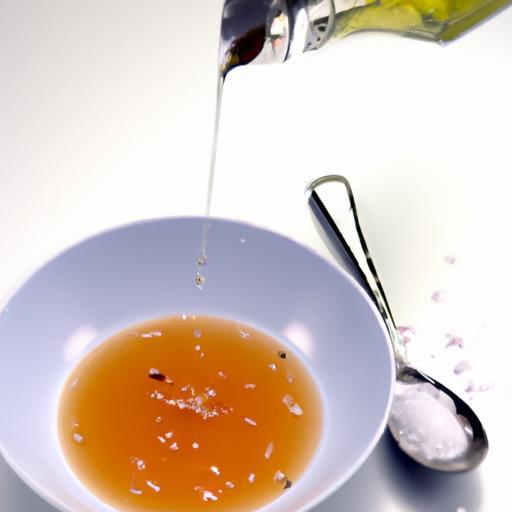When it comes to kitchen wisdom passed down through generations, few tips are as common as this one: adding salt to water will make it boil faster. It’s a nugget of culinary lore whispered from home cooks to professional chefs, often stated with absolute certainty. But is this salty secret really true, or just a sprinkle of myth seasoning our cooking conversations? In this article, we dive deep into the science behind boiling water and salt-separating fact from fiction-to discover whether that pinch of salt is a culinary time-saver or simply a flavor enhancer with no effect on speed. Prepare to have your assumptions stirred, as we debunk the myth that salt speeds boiling water.
Debunking the Myth: Does Salt Really Speed Boiling Water?
When it comes to cooking pasta or blanching vegetables, most home chefs automatically add salt to their boiling water with the belief it speeds up the boiling process. Debunking the Myth: Does Salt Really Speed Boiling Water? uncovers the fascinating chemistry behind this kitchen ritual, explaining how salt truly influences boiling time, flavor, and cooking results. Join me as we break down common misconceptions and discover practical tips that will elevate your next pasta dish.
Prep and Cook Time
- Preparation: 5 minutes
- Cooking: 10-12 minutes (varies by pasta type)
- Total: 15-17 minutes
Yield
- Serves 4
Difficulty Level
- Easy
Ingredients
- 4 quarts of water
- 1 tablespoon kosher salt (preferably)
- 12 ounces dried pasta (spaghetti, penne, or your choice)
- Optional: 1 tablespoon olive oil for tossing after cooking
Instructions
- Fill a large pot with 4 quarts of fresh water, ensuring there’s enough volume for the pasta to move freely and cook evenly.
- Place the pot on high heat and bring to a rapid boil, uncovered. This usually takes 6-8 minutes depending on your stove and pot.
- Once boiling, add 1 tablespoon of kosher salt. Note: Salt raises the boiling point slightly but does not drastically accelerate boiling time.
- As soon as the water returns to a vigorous boil (usually within 30 seconds), add 12 ounces of dried pasta.
- Stir pasta occasionally to prevent sticking and maintain even cooking. Cook uncovered for 8-12 minutes depending on pasta shape and preferred texture.
- Test pasta by tasting-it should be al dente, tender but still firm to the bite.
- Drain pasta immediately using a colander. Optionally toss with 1 tablespoon of olive oil to prevent clumping.
Chef’s Notes: Tips for Success
- Contrary to popular belief, salt does not make water boil faster. It increases the boiling point marginally (by about 0.5°C for tablespoon-sized portions), meaning the water boils at a hotter temperature but takes slightly longer to reach boiling.
- Adding salt is primarily for seasoning-your pasta absorbs the salted water for better flavor.
- For an accurate experiment, try boiling equal amounts of water with and without salt to observe differences yourself.
- Use kosher salt or sea salt for dissolving quickly; avoid iodized table salt, which can impart off flavors.
- If aiming for perfectly tender pasta, rely on cooking times provided on packaging, not whether the water boiled faster or slower.
- Consider using Serious Eats’ comprehensive pasta boiling guide for additional insights and pasta types.
Serving Suggestions
Serve your perfectly boiled pasta tossed in vibrant garden-fresh basil pesto, rich tomato sauce, or a simple garlic and olive oil dressing. Garnish with freshly grated Parmigiano-Reggiano and a sprinkle of cracked black pepper to bring out the nuanced seasoning absorbed during boiling. Accompany with a crisp green salad or crusty artisan bread for a fulfilling meal.
| Nutrient | Per Serving |
|---|---|
| Calories | 380 |
| Protein | 13g |
| Carbohydrates | 75g |
| Fat | 1.5g |

For a deeper dive into optimal pasta techniques, check out our Perfect Pasta Boiling Techniques article.
Q&A
Q&A: Debunking the Myth – Does Salt Really Speed Boiling Water?
Q1: Is it true that adding salt to water makes it boil faster?
A1: Surprisingly, no! While many cooks swear by this trick, adding salt to water actually raises its boiling point, meaning it takes slightly longer to reach a boil, not faster.
Q2: Wait, salt raises the boiling point? How does that work?
A2: This phenomenon is called “boiling point elevation.” When salt dissolves in water, it interferes with the water molecules’ ability to escape as steam. As a result, the water needs to get hotter than 100°C (212°F) to boil.
Q3: If salt delays boiling, why do recipes often say to “salt the water before boiling”?
A3: Good question! Recipes recommend salting the water primarily for flavor, not speed. Salted water seasons pasta and veggies as they cook, making them taste better without extra steps.
Q4: Does salt have any effect on how food cooks in boiling water?
A4: Yes! Aside from seasoning, the slightly higher boiling temperature means food can cook a tiny bit faster or more evenly. But the difference is minimal and often unnoticeable in everyday cooking.
Q5: So, if I want to boil water quickly, should I skip the salt?
A5: If sheer speed is your goal and flavor isn’t a concern, skipping salt can shave off a few seconds-but don’t expect a dramatic difference. The size of your pot, heat source, and water volume matter far more.
Q6: Are there any myths about salt and boiling water worth noting?
A6: One common myth is that adding salt helps water boil instantly or even reduces energy use. In reality, salt slightly raises boiling temperature, so it takes a bit more energy and time to reach the boil.
Q7: What’s the bottom line on salt and boiling water?
A7: Salt won’t speed up your water’s boiling time-it actually slows it ever so slightly. But for flavor and cooking quality, salting your water remains a kitchen classic worth keeping. So, keep salting, just don’t expect magic speed!
In Retrospect
As we’ve uncovered, the age-old kitchen tale that salt speeds up boiling water doesn’t quite hold water-pun intended. While salt plays a crucial role in flavor and even affects the chemistry of boiling, it won’t transform your wait time into an express lane. So next time you’re prepping pasta or veggies, sprinkle that salt for taste and seasoning, not for the promise of faster bubbles. Science and seasoning, it turns out, each have their own perfect timing.














